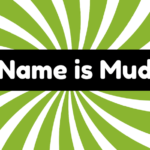To "mull over" means to carefully consider or think deeply about something. This term originated in the 19th century, evoking milling processes that involve thorough analysis. Its first recorded use was in 1874 in The Atlantic Monthly, highlighting its historical significance in emphasizing thoughtful decision-making. Common applications include pondering career choices and weighing options. However, the practice carries the risk of analysis paralysis—where overthinking can impede action. In today's complex world, effective mulling fosters informed choices and helps manage decision fatigue. Exploring these nuances can further illuminate its relevance in modern decision-making scenarios.
Synonyms
A variety of synonyms encapsulate the essence of "mull over," each offering a slightly different nuance to the act of thorough contemplation. Understanding these alternatives can enhance your decision-making process, prompting you to think twice before finalizing any significant choice. Consider the following:
- Ponder – To think deeply about a subject, often reflecting on its implications.
- Dwell on – To repeatedly think about an issue, which may lead to analysis paralysis.
- Reflect – To thoughtfully consider past experiences or options, enabling informed decisions.
As you navigate choices in both personal and professional domains, take the time to chew it over. A deliberate approach, recognizing the value of these synonyms, fosters thorough engagement with potential outcomes and fortifies your decision-making prowess.
Example of Sentences
How can one effectively illustrate the concept of "mull over" in everyday contexts? Here are three illustrative examples to ponder:
- Professional Considerations: "Before launching her startup, she needed to ponder market research findings thoroughly."
- Personal Decisions: "In the midst of a breakup, he found himself pondering his past relationship decisions, weighing the pros and cons of rekindling the romance."
- Creative Inspiration: "Writers often allow characters to ponder their dilemmas, enriching narratives in literature by showcasing internal conflict."
Understanding these examples emphasizes the significance of taking time for reflection in various aspects of life. Whether pondering career opportunities or relationship decisions, thoughtful contemplation can lead to wiser outcomes.
Origin
The term "mull over" has its roots in the 19th century, with initial usage linked to the grinding process in a mill. This etymological journey reveals a historical significance that extends beyond mere contemplation. In a figurative sense, to "mull over" implies thoroughly examining one's options before making a decision. The phrase first appeared in print in the 1874 edition of The Atlantic Monthly, suggesting a cultural shift towards valuing thoughtful deliberation. However, it is critical to note that while this phrase encourages deep reflection, it can also lead to decision fatigue. Understanding the origins of "mull over" provides insight into its function in our modern discourse, underscoring the importance of balancing reflection with timely decision-making to avoid paralysis by analysis.
Collocations
In decision-making contexts, collocations with the phrase "mull over" often enhance its meaning and usage. These combinations can provide deeper insights into mulling strategies and the overall decision processes at play. For those aiming for clarity in their deliberations, consider the following:
- Mull over options – Encourages thorough evaluation of alternatives.
- Mull over consequences – Highlights the importance of understanding potential outcomes.
- Mull over ideas – Promotes innovative thinking before committing to a direction.
Using these collocations effectively enables individuals to engage in thoughtful consideration rather than hurried choices. It's beneficial to recognize that while mulling over facilitates deeper insights, it can also lead to analysis paralysis—highlighting the delicate balance needed in decision-making.
How to Use in Everyday Language
Many individuals incorporate the phrase "mull over" into everyday conversations to convey thoughtful consideration of a topic or decision. It serves as an invitation for prolonged reflection, encouraging deeper engagement with the complexities of decision-making. For instance, rather than hastily choosing, one might say they need to "mull over" their options, reflecting a commitment to thoughtful decision making. This approach is particularly valuable in today's fast-paced world, where surface-level choices can lead to regrettable outcomes. However, it is essential to balance this careful consideration with decisiveness; excessive mulling can stagnate progress. Understanding how to effectively use "mull over" can elevate discussions around choices and enhance one's ability to navigate complex dilemmas with clarity and intention.
Why Is It Still Relevant Today?
Decisions in today's complex world often require more than a superficial evaluation, making the phrase "mull over" particularly relevant. Modern decision making demands careful consideration of numerous variables, requiring individuals to engage in cognitive reflection before arriving at conclusions. As we navigate intricate choices, from personal relationships to professional endeavors, the ability to thoroughly mull things over becomes essential. This deeper cognitive engagement not only aids in reducing decision fatigue but also mitigates the risk of analysis paralysis. In an age where hasty choices can lead to unforeseen consequences, cultivating the habit of mulling over options empowers us to make informed decisions. This mindful approach remains crucial as we seek innovative paths amid the challenges and uncertainties of contemporary life.
Frequently Asked Questions
How Can I Incorporate "Mull Over" Into a Presentation?
Incorporating "mull over" into your presentation enhances decision frameworks by encouraging thoughtful reflection. Emphasize the importance of mulling over options, which fosters innovative thinking and leads to more informed, strategic decisions in collaborative discussions.
Are There Different Contexts Where "Mull Over" Is Inappropriate?
When engaging in decision-making scenarios, it is essential to recognize inappropriate contexts for "mull over." High-stakes environments or time-sensitive situations may require decisive action rather than contemplative reflection, potentially stymieing progress and innovation.
What Is the Emotional Impact of Mulling Over Decisions?
The emotional impact of mulling over decisions can lead to significant emotional stress and decision fatigue, potentially stifling innovative thinking. Prolonged contemplation may hinder timely resolutions, ultimately affecting creativity and adaptive problem-solving in dynamic environments.
Can "Mull Over" Apply to Quick Decisions Too?
While "mulling over" often connotes extensive contemplation, it can indeed apply to quick decisions, where hasty reflection transforms rapid judgments into considered choices, bridging innovation and intuition for effective outcomes in dynamic environments.
How Can "Mull Over" Improve My Decision-Making Skills?
Utilizing "mull over" enhances decision-making skills by fostering decision analysis and cognitive reflection. This method encourages innovative thinking, allowing individuals to explore options thoroughly, ultimately leading to more informed and strategic choices in complex situations.







